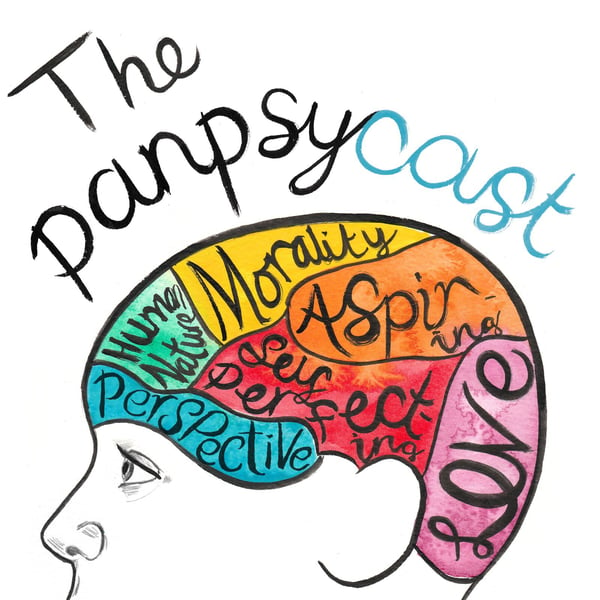Episode 63, 'Pantheism and Panentheism' with Andrei Buckareff (Part II - Further Analysis and Discussion)
The Panpsycast Philosophy Podcast
Jack Symes | Andrew Horton, Oliver Marley, and Rose de Castellane
4.8 • 604 Ratings
🗓️ 28 July 2019
⏱️ 45 minutes
🧾️ Download transcript
Summary
Andrei Buckareff is Associate Professor of Philosophy and Co-Director of the Cognitive Science Program at Marist College in Poughkeepsie, New York, and Associate Editor of the journal Science, Religion, and Culture. Andrei’s work focuses on a range of fascinating topics, from metaphysics, philosophy of mind, epistemology and the philosophy of action, to philosophy of religion, the afterlife, pantheism, and alternative concepts of God. Andrei is a prolific writer, publishing extensively in these fields, and his influence cannot be overstated. Alongside Yujin Nagasawa and funded by the John Templeton Foundation, Andrei is also the co-leader of the ‘the Pantheism and Panentheism Project’, which will form our focus for today.
In this episode, we’ll be speaking to Andrei about alternative concepts of God; more specifically, on Andrei’s recent work surrounding pantheism and panentheism. In a word, Andrei argues that if we are to understand God as ‘acting in space-time’, we should be inclined to believe that this God exists within time and space, at all spatial locations. Moreover, if we are inclined to think that God is omniscient, then we should also believe that God ‘is the universe’ – that is, God and the universe are essentially made of the same stuff, with God being either identical with or constituted by the cosmos.
Andrei’s work calls the orthodox theist to radically reconceptualise their understanding of God, in the light of a more philosophically plausible philosophy. Our question, if we are theists, do we need to change the way we think about God?
This episode is produced in partnership with ‘the Pantheism and Panentheism Project’, which is led by Andrei Buckareff and Yujin Nagasawa and funded by the John Templeton Foundation.
Transcript
Click on a timestamp to play from that location
| 0:00.0 | Pan |
| 0:02.0 | Psygast |
| 0:04.0 | Part two, further analyses and discussion. |
| 0:23.6 | So there's this objection that you talk about in the paper, that there's this worry that God and the universe are the same thing, |
| 0:29.6 | but the universe involves some imperfections and you talk about laws of, what's the law of thermodynamics, someone to remind me? |
| 0:39.3 | Entropy, that's the one. Okay, |
| 0:43.7 | let me move away from entropy and talk about things that are more comfortable with, like, evil. |
| 0:48.7 | We spoke to Emily Thomas, and this is what we finished on the last point. Emily Thomas said that in May Sinclair's view, that there's not a problem for the pantheist who thinks that God's |
| 0:54.0 | identical with the universe and shares our thoughts, because God doesn't care. Mace and Claire's view that there's not a problem for the pantheists who thinks that God's identical |
| 0:54.3 | with the universe and shares our thoughts because God doesn't care about our thoughts, which are bad, |
| 1:00.1 | like wanting to hurt or injure someone or some kind of crude, ugly thought. But on your view, |
| 1:05.8 | it seems more of a problem because God is literally having my thoughts. So when I'm thinking, like, |
| 1:13.3 | Owen Wilson should stop making movies. He's a bad actor and a horrible person. That nasty |
| 1:17.7 | thought that I'm having. What Owen Wilson film have you watched? Drilbert Taylor. Have you seen |
| 1:24.2 | it? It's really bad. Like, and when I'm saying that now and thinking that thing, |
| 1:30.1 | I'm full of anger, Andrew, when I'm saying that, God's literally having this thought with me. |
| 1:35.0 | And my problem, the problem seems to be is that God, the traditional theorist, thinks God's full of love. |
| 1:39.7 | He's maximally good and loving. This doesn't seem like a loving God when he's having these, he seems like a sick, corrupt God on this account. |
| 1:47.3 | How would you respond to this problem of evil for Pantheists, let's call it? |
| 1:51.7 | Yeah. I think go back to the point about God having the maximally consistent set of great making attributes. |
| 2:06.2 | I want to be careful about saying great making attributes because, I mean, once we |
| 2:10.2 | already start with God being embodied, I think some people already say that that's going |
... |
Please login to see the full transcript.
Disclaimer: The podcast and artwork embedded on this page are from Jack Symes | Andrew Horton, Oliver Marley, and Rose de Castellane, and are the property of its owner and not affiliated with or endorsed by Tapesearch.
Generated transcripts are the property of Jack Symes | Andrew Horton, Oliver Marley, and Rose de Castellane and are distributed freely under the Fair Use doctrine. Transcripts generated by Tapesearch are not guaranteed to be accurate.
Copyright © Tapesearch 2025.

